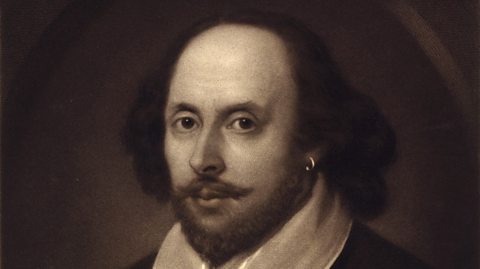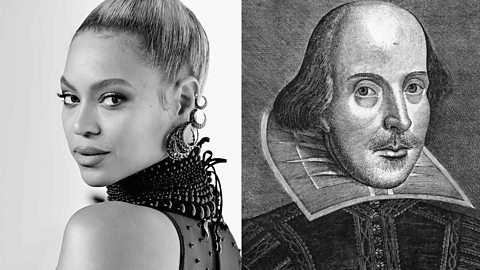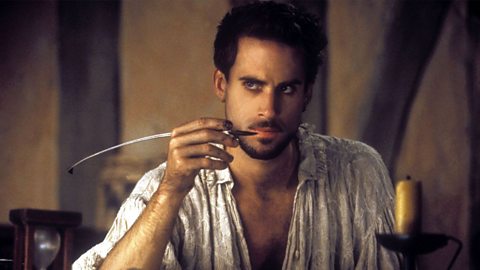As millions of us swap their classrooms and workplaces for home for the foreseeable future, it might take a while to adjust to the new way of life.
The prospect of not being able to see friends and, in some cases, family for weeks can feel really daunting, but it's a necessary step to prevent further spreading of coronavirus.
And while it's true that these are unprecedented measures for our times, there are examples from history which show people had to adapt to medical crises in similar ways, sometimes with pretty impressive results. For example, one of the greatest playwrights ever set himself on the road to success after being forced to self-isolate.

The darkened theatres of 1592
William Shakespeare was doing alright for himself in the early 1590s. His portfolio already included The Taming of the Shrew, and his reputation around London’s theatre scene was on the up and up.
However, these were not the days of healthy sanitation that we enjoy in the 21st Century. A disease known as the Great Plague thrived in the capital’s grimy conditions and proved highly infectious, leading to deaths. The plague was monitored by the authorities and if the death rates grew too high, venues where many people congregated - such as theatres - were closed for indefinite periods.
Medical science was not advanced enough to react to an outbreak in the same way it can today and, in 1592, theatres closed for what would turn out to be a two-year period. Shakespeare, who earned his money as an actor and writer, had to steer clear of them.
Professor Michael Dobson, director of the University of Birmingham’s Shakespeare Institute, told łÉČËÂŰĚł Bitesize: "Shakespeare was lucky.
“He managed to get the attention of a patron, the earl of Southampton, who presumably put him up somewhere, then subsidised him to go on writing despite the fact he wasn’t getting any day-today income as an actor or scriptwriter.”
A time to write
It was during this shelter from the disease that Prof Dobson believes Shakespeare found the time to research and write the historical play Richard III. It is one of the longest of his career, and also the one that shows a high degree of background reading in preparation. What is known is that this period resulted in a number of narrative poems, one in particular that transformed his career even if it is not among his best-known works today.
Prof Dobson continued: “Venus and Adonis was one of his first non-dramatic works and was a huge hit. Everybody read it, it was massively popular. It was reprinted 15 times before the 1630s and is probably the best-known work in print in his lifetime.”
Perhaps an indicator of what was on Shakespeare’s mind while writing the lengthy verse, a passage where the goddess Venus is trying to persuade Adonis to kiss her includes the line, “That the star-gazers, having writ on death, May say, the plague is banished by thy breath.”
In isolation - again
When the playhouses re-opened, Shakespeare’s popularity had swelled considerably. Now a major published poet, he had the income to become a shareholder of the Lord Chamberlain’s Men, a prestigious company of actors. When James I took the throne, they became the King’s Men. As plague levels became dangerous again in 1603, Shakespeare took refuge in a safe house owned by one of the company, along with some of its members.
Prof Dobson explained: “From 1603 to 1613, there were so many outbreaks of plague that many theatres were shut for about half the time, which presumably gave Shakespeare the time to continue working on the very rich and complex plays of the latter part of his career.”
That decade would include classics such as Othello, King Lear, Macbeth and The Tempest.
It wasn’t just Shakespeare
Self-isolation didn’t just bring about worthy additions to the world of literature during the plague years. Scientific discoveries were made also.
Cambridge University was forced to close in 1665 due to plague levels. This meant that Isaac Newton, a mathematics student at Trinity College, had to take shelter at his family home in Woolsthorpe, Lincolnshire.
Away from the usual library of textbooks at his disposal, Newton began developing his own theories. Among other observations, he worked out the path the Moon takes around the Earth and the trajectory of an object fired from a cannon. The time alone also enabled him to form the foundations of a new kind of mathematics where the quantities involved kept on changing. It became known as calculus. It’s still used today, for example, in problems involving the amount of fuel in the tank of a moving vehicle, which reduces the further the vehicle travels.
Newton’s theory of gravity, which legend suggests was inspired by an apple falling from a tree in the garden of his Woolsthorpe home, can’t be pinned down to his time in isolation, however. He only recalled the observation towards the end of his life and he died aged 84, a long time after his student years.
Isolating ourselves during the coronavirus outbreak will affect each of us in different ways. Nobody is expected to come up with theories or literature that will have a massive impact on the world, so don’t feel any pressure. If you do need help or advice, keep checking in with łÉČËÂŰĚł Bitesize where we will be updating readers throughout the ongoing situation.
Test your knowledge of Beyoncé and Shakespeare with this 'who said it?' quiz.

The silver screen Shakespeare quiz
The Lion King, West Side Story, She's The Man. Can you guess which works of Shakespeare these famous films are based on?

łÉČËÂŰĚł Bitesize
